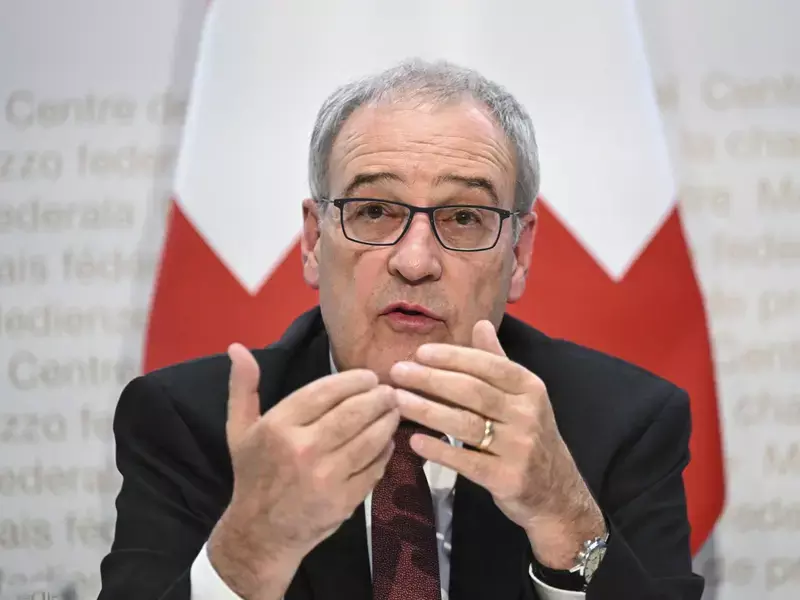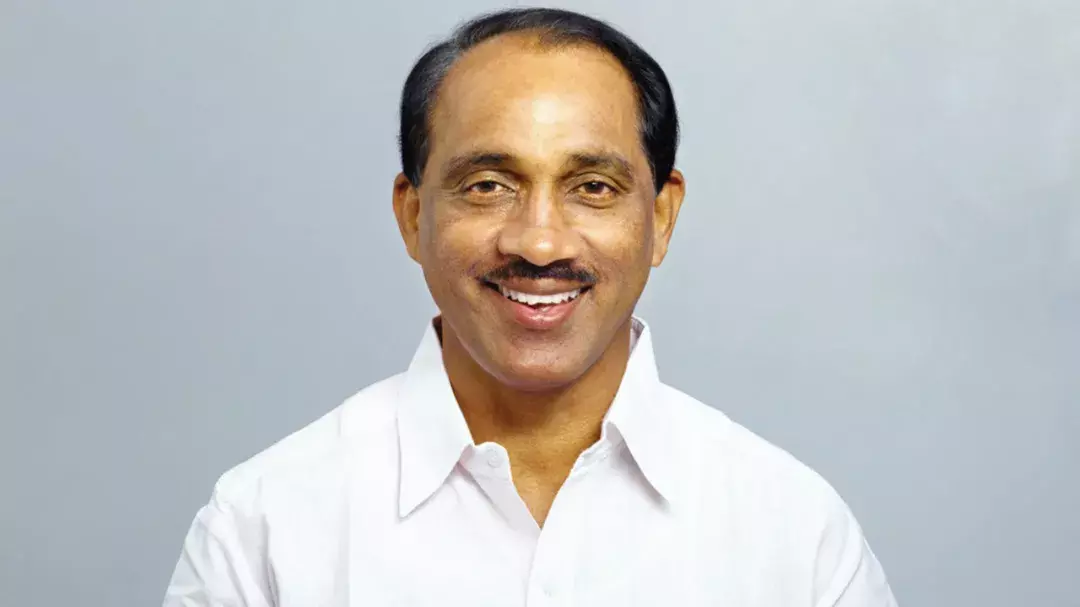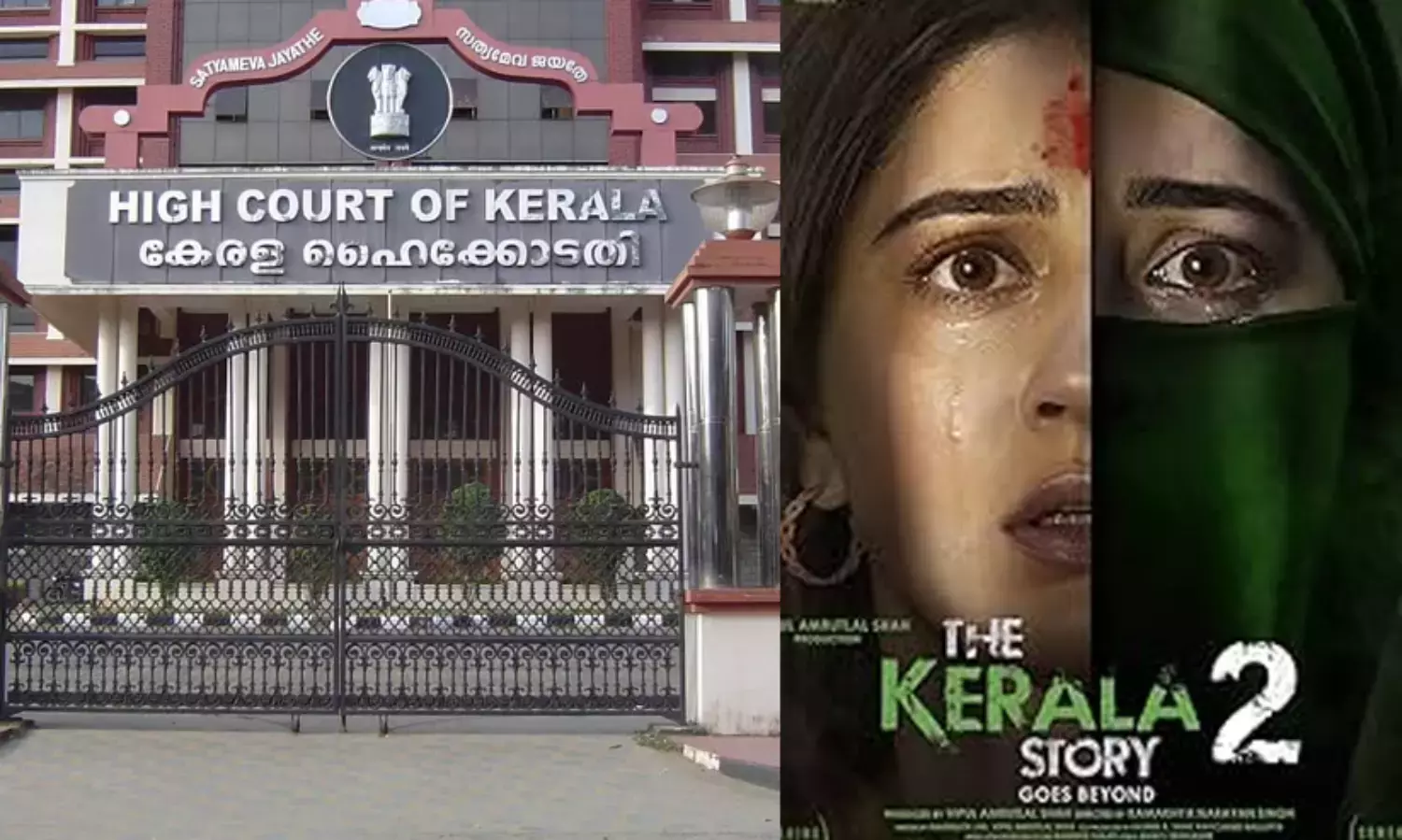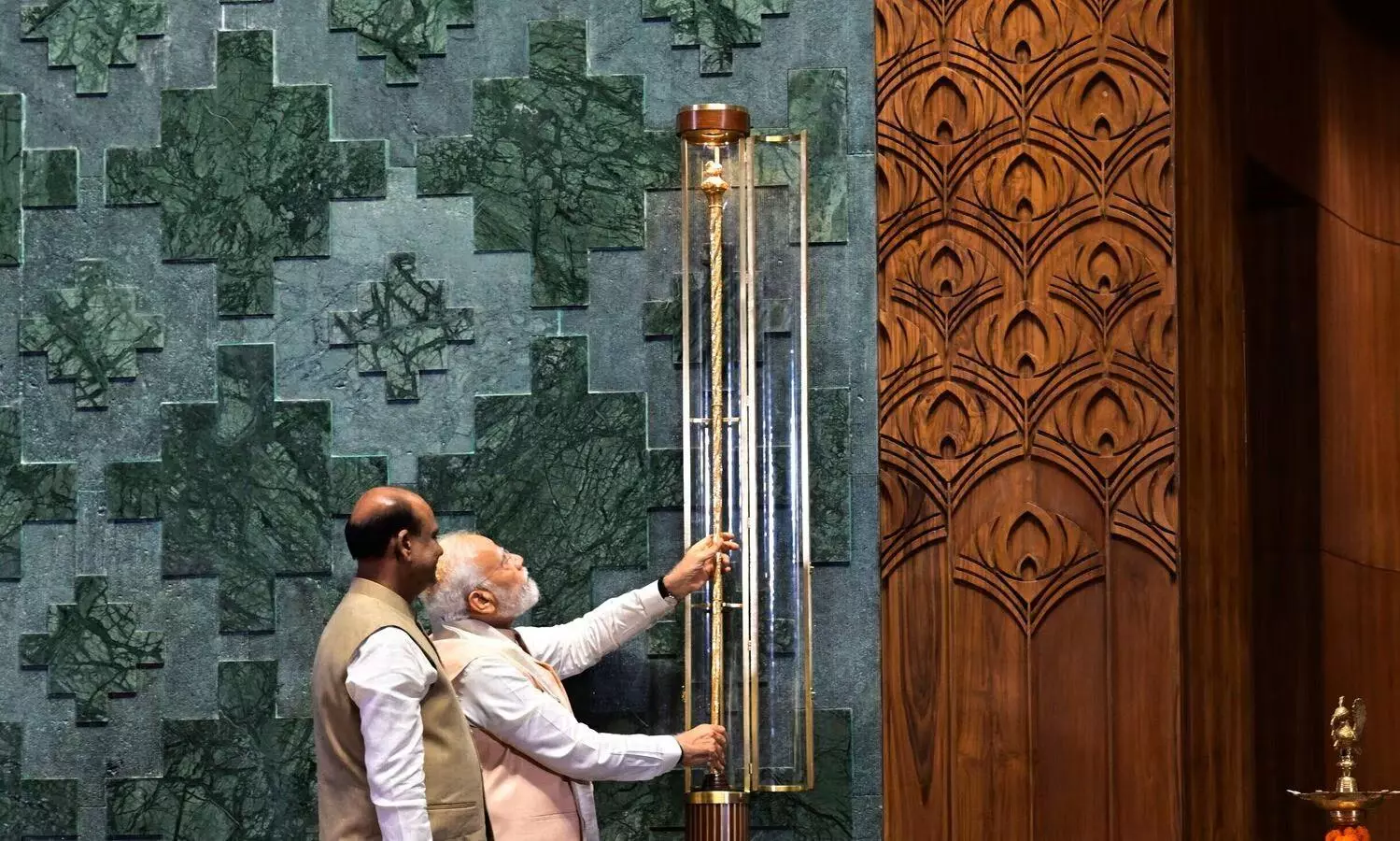
Opposition seeks replacement of 'Sengol' with Constitution in Lok Sabha
text_fieldsThe installation of the 'sengol' next to the Speaker's chair in Lok Sabha has sparked a debate, becoming a contentious issue between the ruling BJP and opposition parties. The controversy began when Samajwadi Party MP RK Chaudhary questioned the relevance of the 'sengol' in a democratic setup and demanded its replacement with a copy of the Constitution.
The 'sengol,' a 5-foot-long handcrafted, gold-plated sceptre, was installed by the BJP government during its previous term. It is symbolic of authority and governance, with roots in Tamil culture, where it traditionally signifies kingship. The opposition argues that in a democracy, the Constitution, rather than symbols of monarchy, should be prominently displayed to represent the guiding principles of the nation.
RK Chaudhary's letter to Speaker Om Birla emphasized that the adoption of the Constitution marked the beginning of democracy in India, and thus, it should be the symbol displayed in the Lok Sabha. He asserted that India, having moved past the era of kings, should be governed by democratic principles as enshrined in the Constitution, not by a symbol reminiscent of monarchical rule.
This stance found support from various opposition leaders. Senior Congress MP B Manickam Tagore and RJD MP Misa Bharti backed Chaudhary's demand, emphasizing the need to celebrate democratic values and the Constitution. They argued that the 'sengol' represents a bygone era of kingship, which is incompatible with modern democratic ideals.
The Samajwadi Party, led by Akhilesh Yadav, emerged as a significant voice in this debate. Yadav pointed out the inconsistency in the Prime Minister's actions, noting that while the Prime Minister had bowed to the 'sengol' during its installation, he did not do so while taking the oath this time.
The BJP, however, defended the installation of the 'sengol,' arguing that it embodies India's rich cultural heritage and traditions. Uttar Pradesh Chief Minister Yogi Adityanath accused the opposition of disrespecting Indian history and culture. He criticized the Samajwadi Party and the broader opposition alliance, the INDIA bloc, for their perceived ignorance and hostility towards Tamil culture, which holds the 'sengol' in high regard.
The BJP contends that the 'sengol' is not just a relic of kingship but a symbol of the rule of law and good governance. Home Minister Amit Shah had previously stated that the installation of the 'sengol' was an attempt to link India's cultural traditions with its modern governance system, serving as a reminder for the administration to adhere to the rule of law.
The opposition's campaign against the 'sengol' comes amid their broader strategy to emphasize the Constitution in their political discourse. This session saw top leaders of the INDIA bloc, including Sonia Gandhi, Mallikarjun Kharge, Rahul Gandhi, and Akhilesh Yadav, visibly holding copies of the Constitution during demonstrations and oath-taking ceremonies.






















